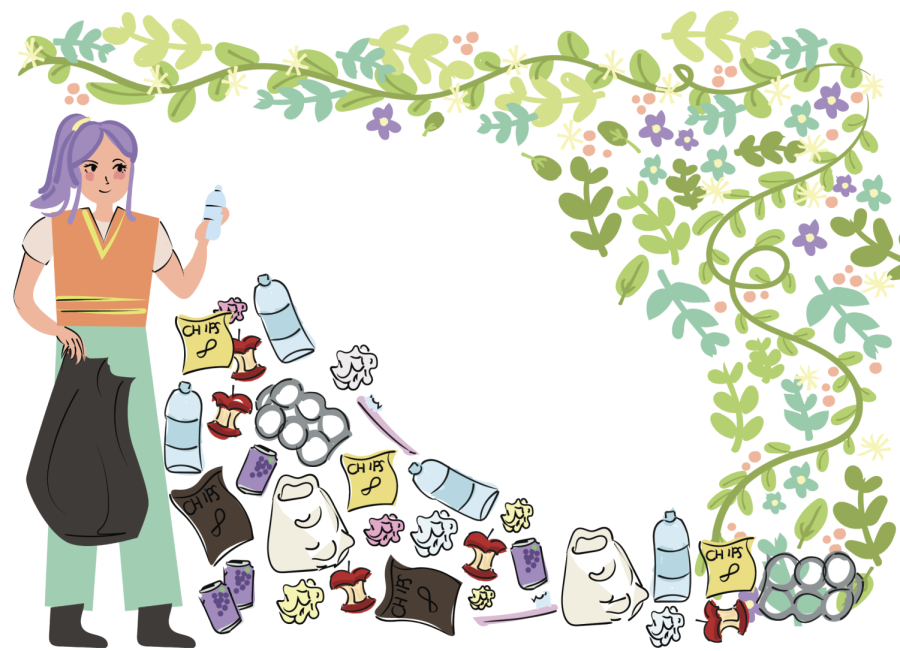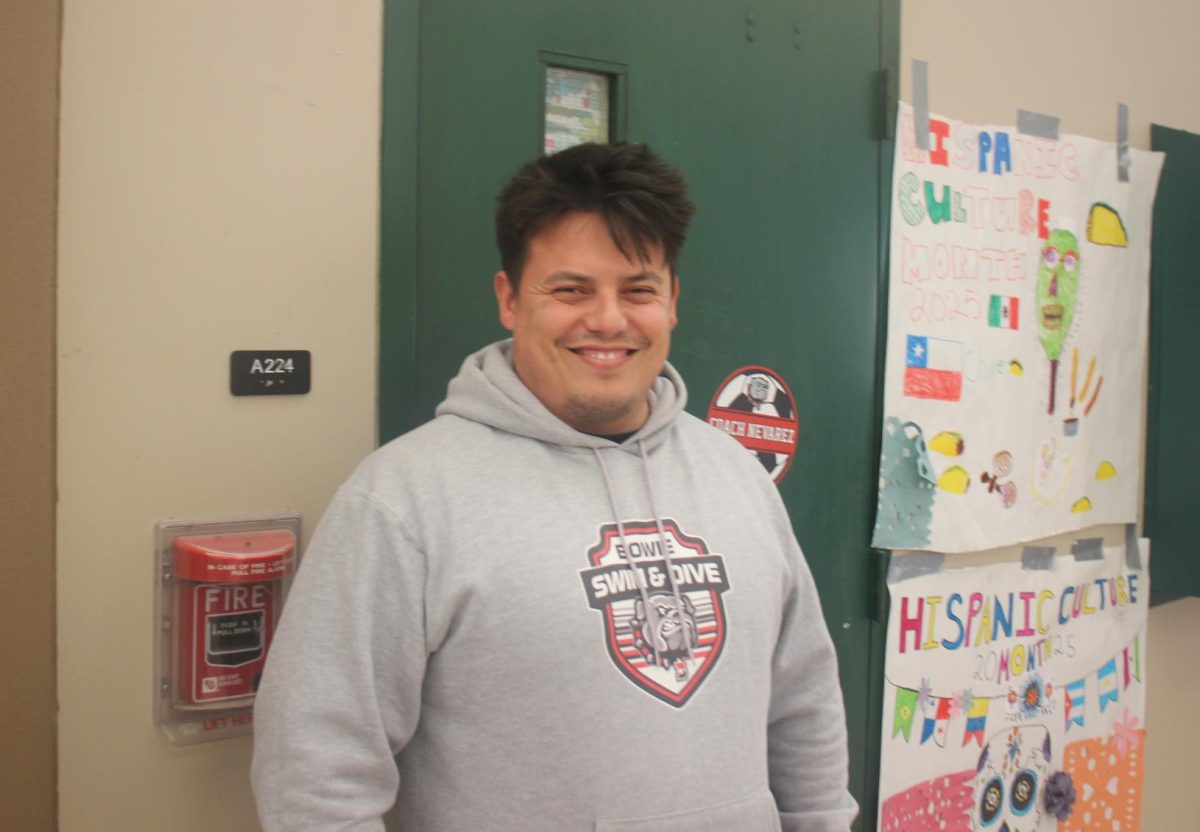‘A call for sustainability’
Earth Day renews emphasis on caring for the environment
As the climate deteriorates with the immense amount of trash everywhere, the conversation of how to keep the earth more sustainable is constantly occurring.
April 19, 2022
If a student looks at a park bench, a highway, or even the parking lot on Bowie’s campus, there are sure to be disposable masks, brown paper bags, and plastic wrappers everywhere. These items are waiting to be run over, rained on, and ignored by someone passing by who does not want to risk touching the contaminated item.
As the climate deteriorates with the immense amount of trash everywhere, the conversation of how to keep the earth more sustainable is constantly occurring. To combat the deadly effects that can occur if the climate dramatically changes, students and staff members take a look at their lifestyle and their attempts to make more small sustainable changes.
“We live on this Earth and it’s the only one that we have which makes it immensely important,” senior Avantika Tiku said. “We need to start taking care of the environment. The call of sustainability is more important now than ever before, even if it’s something as small as picking up and properly disposing of your trash when you’re finished with it.”
In an analysis done by the Environmental Protection Agency (EPA), researchers found that fine particulate pollution, a type of pollution that affects people’s health when levels are high, increased by five percent on average across the entire country. While the use of coal has declined over the past few years, the burning of natural gas and an increase in driving has led to this vast increase of this type of pollution in our environment.
“Our society depends on a lot of things that create a lot of pollution in our world,” senior Keira Folkers said. “They push aside the fact of keeping our earth clean to continue the things that they want to do. A lot of individuals don’t realize how important it is to keep our population alive or even the animal population that exists.”
With Earth Day coming up on Friday, April 22, 2022, several eco-friendly Austin organizations have come up with a list of activities that every individual can do to help keep the earth clean and green. Some of these include planting a tree in your backyard, engaging in a trash cleanup, creating signs to educate your peers on recycling, and creating a composting system in your household.
“We live very extravagant lives in this country as far as material resources go,” AP environmental science teacher Alonna Beatty said. “With the advancement of technology, it’s easier to find ways to become more fuel-efficient. Another one of the changes that need to happen in our society is for us to become a more sustainable global society. This can start with companies need to be responsible for the end of life of their products by creating some sort of reusable system.”
According to the World Development Indicators, the world produces more than 400 million tons of plastic every year. Out of these 400 million, the largest industrial sector is plastic packaging which creates plastic items that are immediately disposed of.
“A cleaner earth to me means that our society changes that shift and are less based on profit and greed, and more based on caring about the environment around us,” Beatty said. “Everything that consumers use like even when we try to reduce how much plastic we buy, it never ends up working out because every product is covered in plastic.”
A National Geographic study found that 91 percent of the plastic that’s collected doesn’t actually get recycled. This means that only nine percent is being recycled. The main cause of this inefficiency in the recycling system is the problem that items are placed into the wrong bin which contaminates the other items in the actual bin.
“The only option is to try to change the system, which means that we have to do it at a government level,” Beatty said. “In order to have it be successful, it needs to be a global government initiative that everyone works together on.”
When President Biden entered office in 2021, he developed 17 Sustainable Development Goals (SDGs) which were comprehensive objectives that were hoped to be completed by 2050. These goals were set to help better understand where the U.S. is on a set of critical economic, social, and environmental dimensions and how far it needs to go in its quest to ‘build back better.’
“One of the sustainable friendly activities that I do is having my own vegetable garden in my backyard, which I just recently started,” Tiku said. “I’ve been growing cucumbers, tomatoes, and other vegetables. It’s super fun and relaxing to get to plant and watch them grow as the weeks go by.”
Aside from creating vegetable gardens, several sources such as the National Ocean Service emphasize that recycling, utilizing reusable bags instead of plastic bags, buying only needs to be used, donating used goods, and not using plastic water bottles can help make your own life environmentally friendly. These actions can assist in decreasing an individual’s carbon footprint in the environment.
“Every person can make a difference with the actions that they take in their daily lives,” Beatty said. “Continue to recycle, use sustainable products, and continue to take care of the Earth, so we can protect our environment.”









